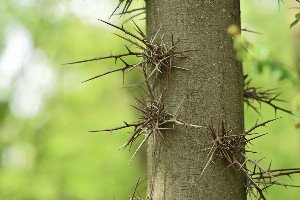Ryan K. Hines
Review of Literature: Potential Benefits of Urban Nature Exposure and Stream Corridor Recreation
Introduction
Review of literature: potential benefits of urban nature exposure and stream corridor recreation. Explore potential health and well-being benefits of urban nature, parks, and stream corridor recreation for growing urban populations. Enhance urban quality of life.
Abstract
This paper examines research and theories which support the argument that within the context of the urban ecosystem, natural areas such as parks, greenways, and stream corridors as places for recreation and leisure have potential to provide a multitude of benefits to the health and quality of life of people living in and visiting urban environments. These benefits contribute to those which are already being realized in more natural areas, such as restoration from mental fatigue and improved sense of wellbeing. This is important because most people in the United States and many other parts of the word live in urban areas, and the number is growing (Grimm, Feath, Golubewski, Redman, Wu, Bai & Briggs, 2008). To ensure that this growing population has access to opportunities that could contribute to a healthy and satisfying quality of life, all potential resources for recreation and leisure, such as those mentioned above, should be explored for possible utilization.
Review
This review of literature tackles a highly pertinent and growing area of research: the intersection of urbanization, human well-being, and access to natural environments. The paper's stated aim is to synthesize existing theories and research supporting the argument that urban natural areas, specifically parks, greenways, and stream corridors, can provide substantial benefits for the health and quality of life of urban residents and visitors. The emphasis on the "urban ecosystem" context is crucial, differentiating this from studies solely focused on wilderness or rural settings, and highlighting the unique challenges and opportunities within densely populated areas. A key strength highlighted in the abstract is the recognition that these urban natural spaces can yield benefits akin to those realized in more pristine environments, such as mental fatigue restoration and an improved sense of well-being. The justification for this exploration is particularly compelling, addressing the demographic reality of a rapidly growing global urban population. The paper rightly positions itself as contributing to the critical discussion around ensuring accessible opportunities for a healthy and satisfying quality of life by urging the exploration of all potential recreational and leisure resources within urban landscapes. While the abstract clearly sets the stage for a valuable synthesis, a full review stemming from this premise would ideally delve into the specific theoretical frameworks and empirical evidence employed to support these claims. For instance, it would be beneficial to understand if the review explores psychological (e.g., Attention Restoration Theory, Stress Reduction Theory), ecological, or sociological theories, and the types of studies considered. Additionally, exploring the nuances of "potential benefits"—such as factors mediating these benefits (e.g., quality of design, maintenance, accessibility, type of activity) or challenges in their realization—would further strengthen the overall contribution. Nevertheless, this paper offers a timely and important call to action, providing a foundational overview of the compelling reasons to prioritize and invest in urban green infrastructure for public health and well-being.
Full Text
You need to be logged in to view the full text and Download file of this article - Review of Literature: Potential Benefits of Urban Nature Exposure and Stream Corridor Recreation from Illuminare .
Login to View Full Text And DownloadComments
You need to be logged in to post a comment.
Top Blogs by Rating
Beyond the Charts: Unlocking S...
By Sciaria
The Geological Secret in Your...
By Sciaria
The Elusive Self: Is Authentic...
By Sciaria
Favorite Blog
Electro: The Art of Engineered...
By Sciaria
Beyond the Chart: The Nurse's...
By Sciaria
Mycorrhizal Networks: Unearthi...
By Sciaria
Related Research
An analysis of "来/去" errors in chinese directional complements by indonesian students
The effectiveness of using films to increase entrepreneurial interest and learning outcomes in creative product and entrepreneurship subjects
Analysis of asset management at universitas negeri semarang on the financial performance of legal entity state university (ptnbh)
Share
Notice Board
- ?ZWEI LANGUAGES ZUSAMMENPUTTEN?1: BILINGUAL WAYS OF EXPRESSING BICULTURAL IDENTITIES
- TULEVAISUUTEEN SUUNTAAVAA URAOHJAUSTA ETSIMäSSä: OPINTO-OHJAAJAOPISKELIJOIDEN AJATUKSIA OHJAUKSESTA JA TULEVAISUUDESTA
- DIGITAL STORYTELLING AS A PEDAGOGICAL TOOL: ASSESSING THE IMPACT ON VOCABULARY ACQUISITION IN PAKISTANI MULTILINGUAL ELT CLASSROOMS





